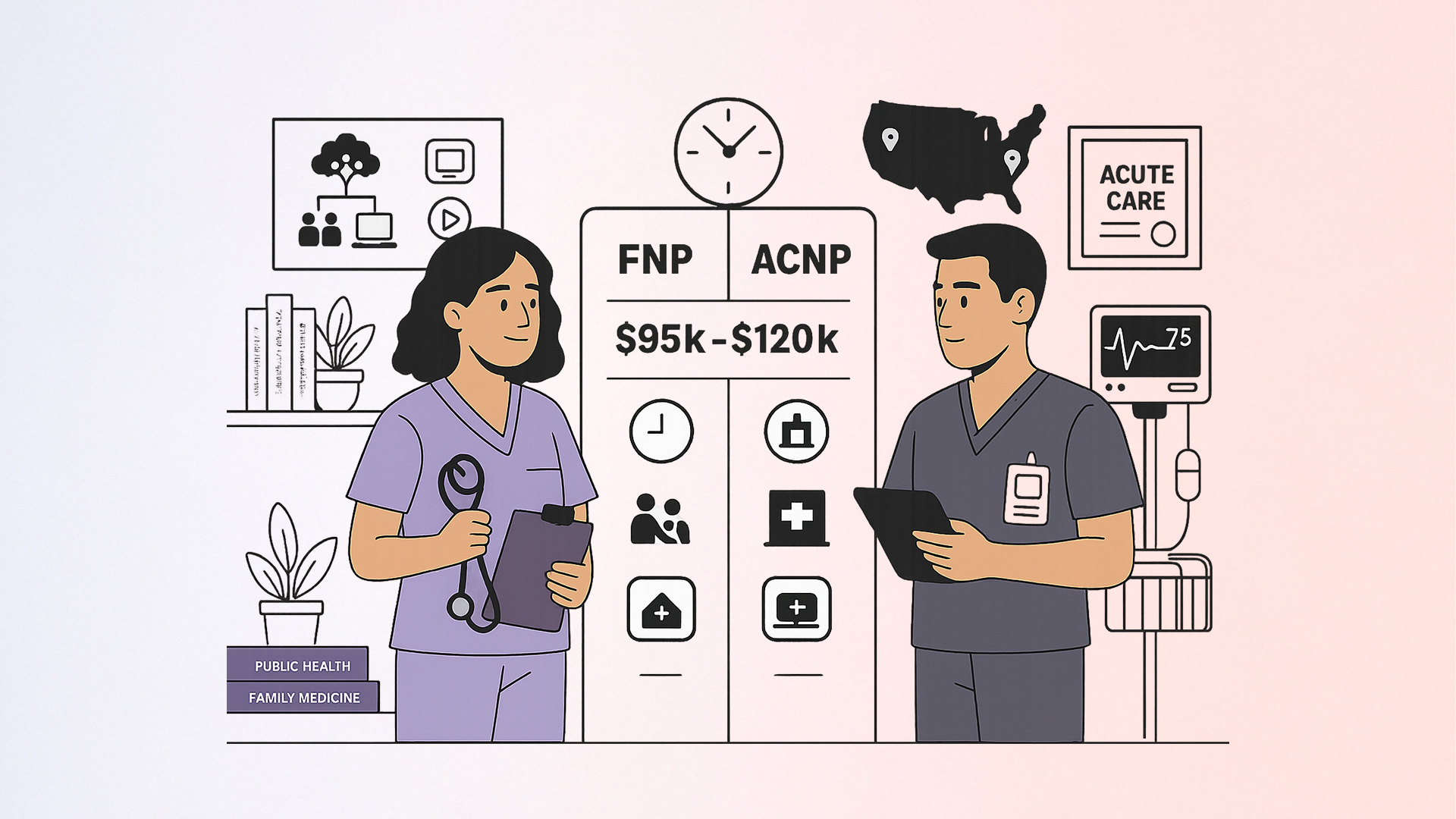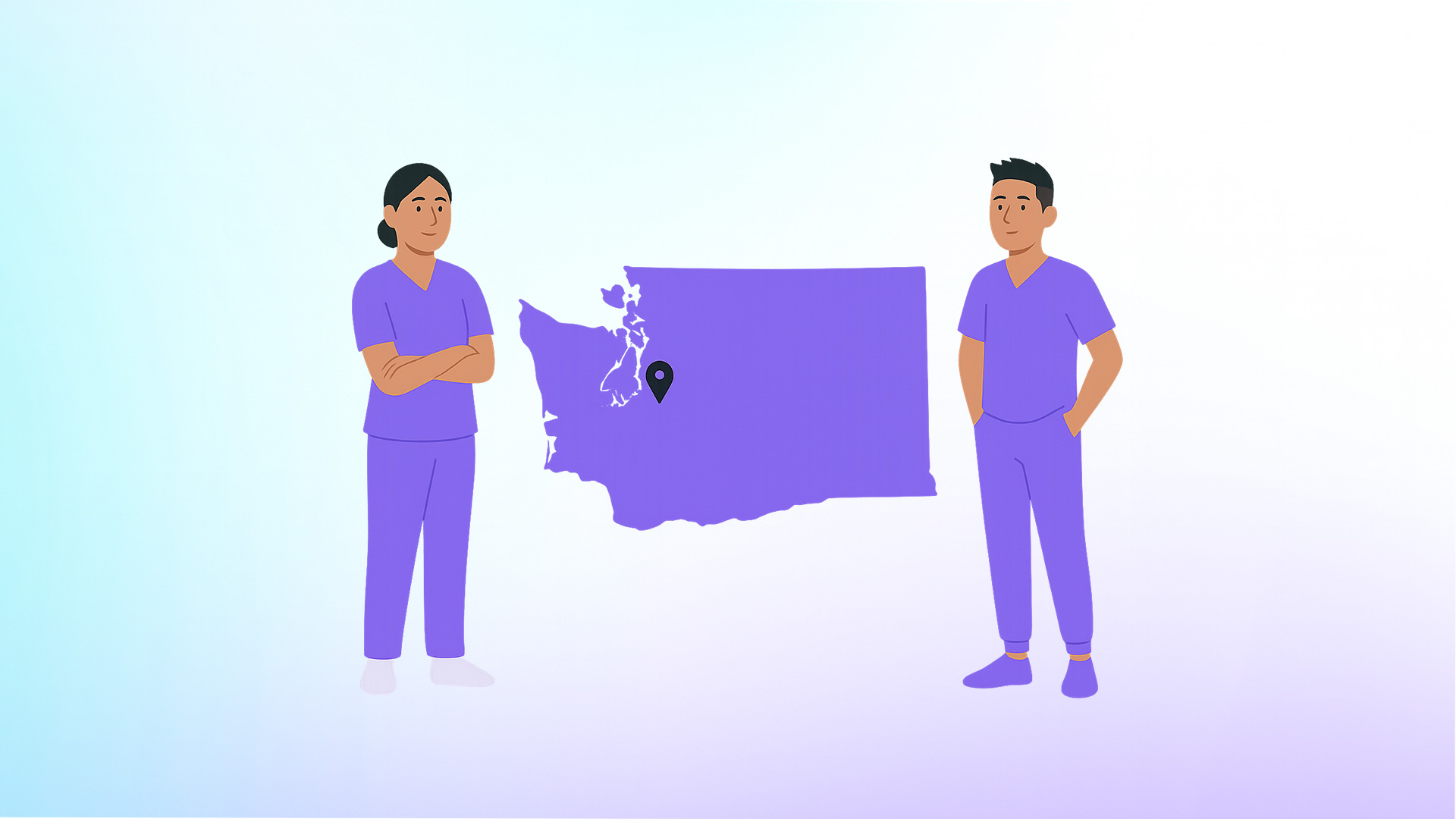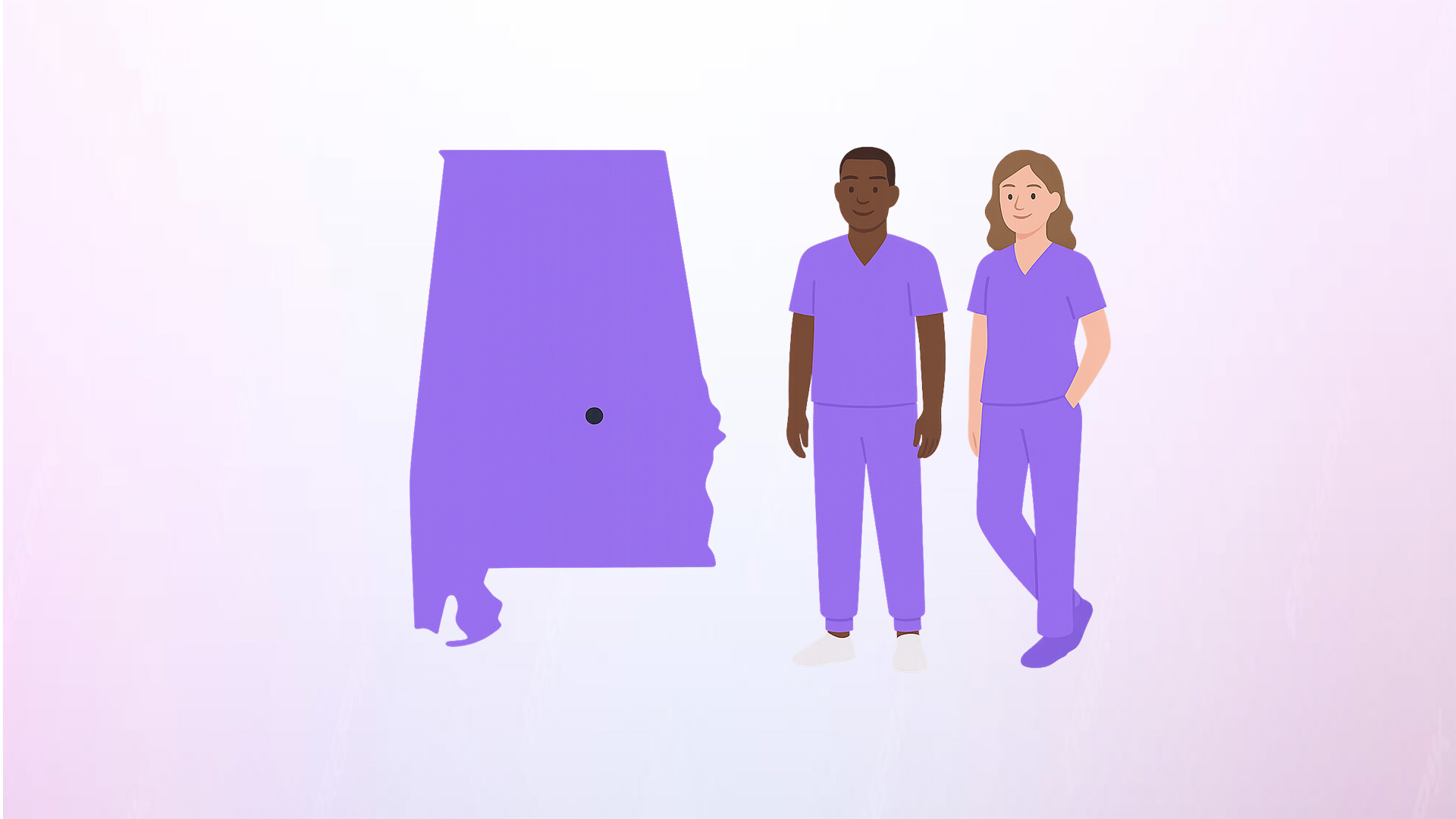TL;DR: FNP vs Acute Care NP Salary in 5 Quick Facts
- The FNP vs Acute Care NP salary difference is closer than expected – Family nurse practitioners average $127,976/year, while acute care nurse practitioners earn $117,423/year, with overlapping salary ranges depending on location and experience.
- Location dramatically affects how much nurse practitioners make – Top markets like Nome, AK and Berkeley, CA offer $145K+ average salary potential for both specialties—though cost of living matters when you review total compensation.
- Practice setting shapes your nursing career – FNPs often work in community clinics, private practices, and telehealth treating patients across all ages; ACNPs are hospital-based (ICU, ED, step-down) working alongside physicians with more shift differentials and call pay.
- Clinical placement challenges can delay your master's degree – FNPs face competition for preceptors due to program popularity, but acute care nurse practitioners struggle more due to hospital limitations and supervision requirements for treating patients with complex injuries.
- Your education timeline directly impacts your earning potential – Every missed semester means more tuition plus delayed median annual income. Finding preceptors early protects your nurse practitioner career progression and salary goals.
You're considering taking the leap into nurse practitioner school while balancing your current nursing career, family responsibilities, and the big decision of which specialty to pursue. Among the many nurse practitioner options available, family nurse practitioner and acute care nurse practitioner roles consistently rank as two of the most popular choices for good reason.
The decision between these specialties can feel overwhelming when you're researching which path offers:
- Better salary potential for your investment
- Work-life balance that fits your family's needs
- More job opportunities in your desired location
- Career growth that aligns with your interests
- Practice settings that match your preferences
If you're researching FNP vs Acute Care NP salary comparisons, you're likely weighing more than just numbers. You're thinking about your future—where you'll be treating patients, what your daily responsibilities will look like, and whether you'll have the flexibility to continue caring for your own family while building a rewarding career in nursing.
The good news? Both family nurse practitioner and acute care nurse practitioner roles offer competitive opportunities:
- Both specialties provide strong average salary potential in the nursing field
- You'll develop treatment plans, conduct physical exams, and make a real difference in patients' lives
- Multiple practice settings are available, from hospitals to community clinics
- Strong job growth is projected for both nurse practitioner paths
- Opportunities exist to specialize in areas like women's health or oncology
But here's what many prospective NP students don't consider when comparing salaries: before you can earn that first paycheck as a nurse practitioner, you need to complete your clinical rotations. And while this might seem like a distant concern now, understanding the challenges ahead can help you make a more informed decision about your specialty choice.
Family Nurse Practitioner (FNP) Salary & Career Path
Family nurse practitioners represent one of the most popular specialty choices in nursing, with good reason. According to the American Association of Nurse Practitioners, more than 60% of the over 375,000 licensed nurse practitioners in the United States specialize in family care, making it the most common NP specialty.
Salary Expectations for FNPs
The earning potential for family nurse practitioners varies significantly based on several factors:
- National average salary: Recent data shows FNPs earning around $127,976 annually
- Salary range: Most FNPs earn between $110,500 (25th percentile) and $140,000 (75th percentile)
- Top earners: The highest-paid FNPs can make up to $164,000 annually
- Geographic variation: Salaries can differ by as much as $29,500 depending on location, with cities like Nome, AK and Berkeley, CA offering the highest compensation
Where FNPs Practice
Family nurse practitioners work in diverse healthcare settings, allowing flexibility in career choices:
- Community clinics providing primary care to local populations
- Private practices offering personalized patient care
- Hospitals in outpatient departments and specialty units
- Group practices collaborating with physicians and other healthcare professionals
- Telehealth platforms serving patients remotely
Patient Care Scope
What sets FNPs apart is their ability to care for patients across all age groups:
- Infants and children: Providing pediatric care from birth through adolescence
- Adults: Managing chronic conditions, preventive care, and acute illnesses
- Seniors: Addressing age-related health concerns and complex medical needs
- Families: Often serving as the primary healthcare provider for entire families across generations
Specialization Opportunities
While FNPs provide comprehensive care, many choose to focus on specific areas:
- Women's health: Reproductive health, prenatal care, and gynecological services
- Oncology: Cancer care and supportive treatments
- Gerontology: Specialized care for older adults
- Diabetes management: Advanced certification for metabolic disorders
- Pain management: Specialized training for chronic pain conditions
Acute Care Nurse Practitioner (ACNP) Salary & Career Path
Acute care nurse practitioners represent a specialized and high-demand segment of the nursing profession. These advanced practice nurses focus on providing critical care to patients with complex injuries and acute conditions, making them essential members of healthcare teams in high-acuity settings.
Salary Expectations for ACNPs
The earning potential for acute care nurse practitioners reflects their specialized training and high-responsibility roles:
- National average salary: Recent data shows ACNPs earning approximately $117,423 annually
- Salary range: Most ACNPs earn (hourly) between $48.80 (25th percentile) and $63.46 (75th percentile) per hour
- Top markets: Cities like Nome, AK ($145,663) and Berkeley, CA ($143,777) offer the highest compensation
- Competitive positioning: While slightly lower than FNP averages, ACNPs often have opportunities for overtime and shift differentials
Hospital-Focused Practice Environment
Unlike family nurse practitioners who work in various settings, acute care nurse practitioners primarily work in:
- Hospitals providing critical care services
- Intensive care units (ICUs) managing critically ill patients
- Emergency departments handling urgent medical situations
- Specialty units such as cardiac care, trauma centers, and surgical units
- Step-down units caring for patients transitioning from intensive care
Patient Care Specialization
Acute care nurse practitioners focus on treating patients with:
- Complex injuries from accidents, trauma, or surgical procedures
- Acute conditions requiring immediate medical intervention
- Critical illnesses that demand specialized monitoring and treatment
- Post-operative care for patients recovering from major surgeries
- Chronic disease exacerbations requiring intensive management
Collaborative Healthcare Environment
ACNPs work closely with multidisciplinary teams:
- Physicians in various specialties including cardiology, pulmonology, and nephrology
- Nurses providing bedside care and monitoring
- Respiratory therapists, pharmacists, and other healthcare professionals
- Specialists across different medical disciplines
- Hospital administration and quality improvement teams
Advanced Education and Certification Requirements
The path to becoming an acute care nurse practitioner involves rigorous education:
- Master's degree requirement: MSN or DNP with acute care specialization
- Specialized coursework: Advanced pathophysiology, pharmacology, and clinical assessment
- Clinical rotations: Hands-on experience in acute care settings
- National certification: Passing rigorous exams through organizations like AANP or ANCC
- Continuing education: Ongoing requirements to maintain certification and license
The Real Salary Factors: Location, Experience, and Specialization
While average salary comparisons provide a starting point, several key factors significantly impact how much an Acute Care NP makes versus a family nurse practitioner's salary potential.
Geographic Salary Variations
Location dramatically affects nurse practitioner earnings:
- Top-paying cities: Nome, AK leads with salaries up to $158,753 for FNPs and $145,663 for ACNPs
- California markets: Berkeley, San Francisco, and San Jose consistently offer premium compensation
- Cost of living: Higher salaries in expensive areas may not translate to better purchasing power
- Regional differences: Salary ranges can vary by up to $29,500 between locations
Experience Impact on Earnings
Your career timeline directly influences earning potential:
- New graduates: Typically start at the 25th percentile of salary ranges
- Mid-career professionals: See steady increases with 3-5 years of experience
- Senior practitioners: Top earners (90th percentile) often have 10+ years of experience
- Leadership roles: NPs moving into management or education can exceed typical salary ranges
Additional Factors Affecting Compensation
- Practice setting: Hospital employment often includes better benefits than private practices
- Patient volume: Higher patient loads may correlate with increased compensation
- Call requirements: Acute care roles with on-call duties often receive premium pay
- Continuing education: Ongoing education investments can lead to salary increases
Understanding these factors helps you make informed decisions about your nurse practitioner career path and earning potential.
The Hidden Challenge: Finding Clinical Preceptors for Your Specialty
While you're weighing FNP vs Acute Care NP salary potential and career paths, there's a crucial step that often gets overlooked in the decision-making process: securing clinical preceptors for your rotations. This challenge can significantly impact your timeline to graduation and ultimately delay your entry into earning that nurse practitioner salary you've been researching.
The Stress of Preceptor Hunting While Working Full-Time
As a working nurse pursuing your master's degree, you're already juggling multiple responsibilities:
- Maintaining your current nursing job to support your family
- Completing demanding coursework and studying for exams
- Managing household responsibilities and family commitments
- Searching for preceptors in your chosen specialty—often the most time-consuming task
Many students spend months reaching out to potential preceptors, only to face rejection after rejection. The stress intensifies as clinical placement deadlines approach, and you realize that without these rotations, graduation becomes impossible.
Specialty-Specific Preceptor Challenges
Finding preceptors varies significantly between specialties:
Family Nurse Practitioner preceptors:
- High demand due to the popularity of FNP programs (69% of all NPs)
- Competition among students for community clinic and primary care placements
- Many family practice preceptors are already overwhelmed with students
Acute Care Nurse Practitioner preceptors:
- Limited availability in hospital settings due to complex scheduling
- Physicians and experienced acute care nurse practitioners often hesitant to take students
- Intensive care units and emergency departments have strict supervision requirements
- Liability concerns in high-acuity environments
The Ripple Effect of Preceptor Shortages
When you can't find preceptors, the consequences extend far beyond delayed graduation:
- Sitting out semesters: Missing clinical rotations means postponing your degree
- Financial impact: Extended school time equals more tuition fees and delayed earning potential
- Career timeline: Every semester delay pushes back your entry into nurse practitioner practice
- Emotional toll: The frustration of working so hard only to be stuck waiting for clinical placements
Why This Problem Persists
The preceptor shortage stems from several industry-wide issues:
- Excess of students: More NP programs than available preceptors
- Preceptor burnout: Experienced NPs taking breaks from mentoring after negative experiences
- Productivity concerns: Preceptors worry about reduced patient volume when supervising students
- Lack of support: Many universities provide minimal assistance in securing placements
This is where having the right support makes all the difference. Rather than struggling alone to find preceptors while managing your full-time job and coursework, imagine having a dedicated team handling the entire process for you—from initial outreach to paperwork completion, allowing you to focus on your studies and current nursing responsibilities.
Invest in Your Future Starting Today
Both family nurse practitioner and acute care nurse practitioner paths offer rewarding careers with strong earning potential. FNPs can expect salaries ranging from $110,500 to $164,000 annually, while ACNPs typically earn between $117,423 and $145,663, depending on location and experience.
The difference in FNP vs Acute Care NP salary is less significant than you might think—your choice should focus on:
- Patient population you're passionate about serving
- Work environment that fits your lifestyle
- Career growth opportunities that align with your goals
- Practice settings where you want to make an impact
The Critical Next Step
Remember, before you can earn that first paycheck as a nurse practitioner, you need to successfully complete your clinical rotations. Don't let preceptor placement challenges derail your career timeline or delay your entry into this high-demand field.
At NPHub, we understand the stress of finding preceptors while juggling work, school, and family responsibilities. Our vetted network of preceptors and comprehensive support services help nurse practitioner students secure their clinical placements quickly and efficiently, so you can focus on your studies and stay on track for graduation.
Ready to eliminate the preceptor search stress from your education journey? Learn how NPHub can help you complete your clinical rotations on time at nphub.com.
Ready to Take the Next Step?
Whether you choose the family nurse practitioner or acute care nurse practitioner path, your nursing career advancement depends on completing your education on time. If you're ready to explore nurse practitioner opportunities and learn more about career paths in both specialties, visit NPHire.com to discover current openings and connect with healthcare employers actively seeking skilled NPs.
Your journey to becoming a nurse practitioner is an investment in your future—and in the lives of the countless patients you'll serve. The healthcare community needs dedicated professionals like you, and with the right support system, you can achieve your goals without unnecessary delays.
Start planning your specialty choice today, but don't wait until clinical placement season to address the preceptor challenge. Your future nurse practitioner career—and salary—depends on completing every step of your education journey successfully.
Frequently Asked Questions
1. Which specialty actually pays more: FNP or ACNP?
Family nurse practitioners typically earn slightly more on average ($127,976 annually) compared to acute care nurse practitioners ($117,423 annually). However, ACNPs often have opportunities for overtime pay and shift differentials that can increase total compensation. Location and experience level have a bigger impact on salary than specialty choice alone.
2. Is it harder to find preceptors for FNP or ACNP programs?
Both specialties face challenges, but for different reasons. FNP preceptors are in high demand because 69% of all nurse practitioners choose this specialty, creating intense competition among students. ACNP preceptors are limited due to hospital scheduling complexities, liability concerns, and the high-acuity environment requirements. Neither path is necessarily "easier" for preceptor placement.
3. Can I switch between FNP and ACNP specialties later in my career?
While both require master's degree-level education, switching specialties typically requires additional coursework and clinical hours specific to your new focus area. You'd also need to pass the national certification exam for your new specialty. It's possible but involves significant time and financial investment, so choosing the right path initially is important.
About the author
- NPHub Staff
At NPHub, we live and breathe clinical placements. Our team is made up of nurse practitioners, clinical coordinators, placement advisors, and former students who’ve been through the process themselves. We work directly with NP students across the country to help them secure high-quality preceptorships and graduate on time with confidence. - Last updated
July 3rd, 2025 - Fact-checked by
NPHub Clinical Placement Experts & Student Support Team - Sources and references
- https://www.nphub.com/blog/how-to-land-your-np-preceptor-at-an-acute-care-np-office
- https://www.nphub.com/blog/securing-family-nurse-practitioner-preceptors-and-clinical-rotations
- https://www.ziprecruiter.com/Salaries/Acute-Care-Nurse-Practitioner-Salary#Yearly
- https://www.ziprecruiter.com/Salaries/Online-Family-Nurse-Practitioner-Salary
- https://www.aanp.org/news-feed/nurse-practitioner-profession-grows-to-385-000-strong
Find a preceptor who cares with NPHub
Book a rotation.webp)








.webp)


.webp)



.webp)